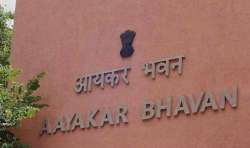CBDT mulling new system of jurisdiction-free I-T assessment to curb corruption
CBDT has constituted a special team of officers to prepare rules for new system of jurisdiction-free I-T assessment.

The Income Tax Department is working on a new system of jurisdiction-free assessment, where a taxpayer would be assessed by a taxman based in any part of the country as part of measures to reduce instances of corruption and harassment. Officials said the Central Board of Direct Taxes (CBDT), that frames policy for the tax department, has constituted a special team of officers to prepare modalities for this path- breaking initiative and abolish the age-old prevalent system of a taxpayer being assessed in a specific circle of the city or town where he or she is based.
"This first-of-its-kind initiative will totally change the relationship and dealing between an assessee and his Assessing Officer (AO). The income tax returns, scrutiny cases and all other I-T related correspondence of a taxpayer will go to a officer chosen randomly by the database system who is working in any I-T office of the country," a senior official privy to the development said.
For example, the Income Tax Return (ITR) and scrutiny case papers of a taxpayer living in Delhi could be assessed by an AO based in say Mumbai or Kochi and likewise, the official said.
All the AOs will be given a stipulated number of cases to dispose and cases of high-value assessees can similarly be sent to an AO in a different city and this work can be aided by his counterpart based in the local region for objective and informed assessment.
Once implemented, the official said, the new system of assessment will remove virtually all human interface between the taxpayer and the tax officer and this will not only ensure transparency but also ease complaints of taxpayers regarding harassment or corrupt practices at the hands of the AO.
Another officer working in the Finance Ministry said the new system will require an amendment in the Income Tax Act, 1961 and is expected to be ushered in from the next financial year.
A pilot project will also be run to identify possible issues and the final go-ahead will be obtained from the Finance Ministry, the official said.
"In the first instance, we will initiate the system of conducting limited scrutiny cases via the 'e-proceeding' system that had been notified recently under the ambitious Internet-based paperless communication system of tax dealings," the official said.
PTI in April had first reported that all the Income Tax Department proceedings will henceforth be conducted online.
The CBDT had issued a notification in this regard on April 3 and had said that a new link or window called 'e- proceeding' will be soon be hosted on the e-filing website of the department--https://incometaxindiaefiling.gov.in-- used currently by taxpayers to file ITRs.
The CBDT notification had said that the new procedure of e-communication is "applicable to all proceedings under the Income Tax Act, 1961 under this notification as enabled from time to time".
The new regime of e-communication will, however, be voluntary and a taxpayer can take a call on whether to conduct his dealing with the taxman over the e-system or through the existing procedure of manual submissions of documents by visiting the tax office.
Once a taxpayer registers on the web portal, he or she will get a confirmation SMS and email on their registered mobile number and email ID, indicating success.
The functionality to conduct e-proceeding will be available for all types of notice, questionnaire, letter issued under various sections of the I-T Act, the CBDT had said.
The new e-proceeding procedure, the CBDT had said, is a part of e-governance initiative to facilitate a simple way of communication between the I-T department and the taxpayer, through electronic means, without the necessity of the taxpayer to visit the I-T office.